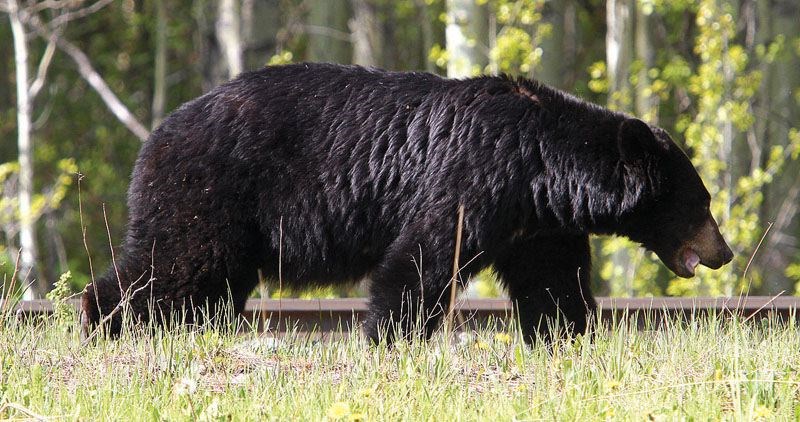The number of euthanized bears is down this year, but the reason why the killings continue lives on.
The Northern Bear Awareness Society disclosed this year's data on Tuesday, and also expressed their dismay at the high percentage of those killings that were linked directly to people's untidiness.
People still put other people and their bruin neighbours at unnecessary risk by leaving attractants outside in the yard, said the society's president Dave Bakker.
These attractants are: household garbage, ungathered fruit grown on backyard trees, unclean barbecues, unkempt bird feeder areas, basically anything that a bear would find interesting to eat that isn't enclosed.
In the six-month bear season of 2014 (April to September) there were 1,100 calls from the public to report bear concerns.
Conservation officers had to kill 45 bears in that period last year.
This year, said Bakker, the numbers dropped to 633 calls and 20 bears were euthanized.
The lower numbers can be attributed to many things, he said, including lower overall population of bears, or a better year for natural food. He isn't sure and that research isn't done.
What is emergent from the data is a clear pattern as to why those 20 bears are now dead. Almost all of them, he said, were victims of humans not cleaning up after themselves.
"There is no such thing as an overfed bear," he said. "They are always striving for more calories as they get set to hibernate. In July and August combined, we only had 38 calls to report bears. The vast majority came after that, 382 calls, in September up to now.
"Why are they suddenly coming into the city? It's not because this is on some natural game trail, it is because people are basically calling them in with all those temptations when their instinct is to power-eat. That instinct would be satisfied out in nature, if all those attractants were just sitting there.
"What's a bear supposed to do?
"Of course they're going to go after the easy meal. And then they have to be killed."
The Northern Bear Awareness Society has, for years, been the primary group in the area pushing public perceptions to change those attractant behaviours. Little can be done in an urban-wilderness interface city to change the bears' behaviours, so the change has to come from the human side of the equation. So the society has established a fruit exchange program, to collect unwanted fruit. They established a garbage audit program, so those people who aren't garbage conscious can be "ticketed" with an information brochure. They have been key conduits of knowledge to school children, urban planners, end everyone in between.
One of the signs Bakker said the society is seeing most, that gives them extra motivation, is neighbours reporting the people on their street who don't follow the practices that reduce attractants.
If someone isn't securing their garbage, or letting their crabapples fall to the ground and rot, that gets called in more quickly than ever before. The delinquent neighbour may need only an informational visit to change their ways.
"It's not just a responsibility you have to yourself, or to the bear," Bakker said. "We are all responsible for our whole neighbourhoods. If your attractants bring the bears in, and causes issues at other houses on your street, that's a preventable problem. How would you feel if something you did - or didn't do - caused an incident with a kid a few doors down the street? This is one of those situations where we really are all in this together."
Bakker warned that the fall period has been mild this year. A late autumn means bears will likely be active as long as the weather holds, so attractant vigilance must be kept up.
Contrary to the beliefs of some, he said, it doesn't take much to keep garbage out of the mouths of bears - just a shed or a garage with a typical door.

.png;w=120;h=80;mode=crop)

